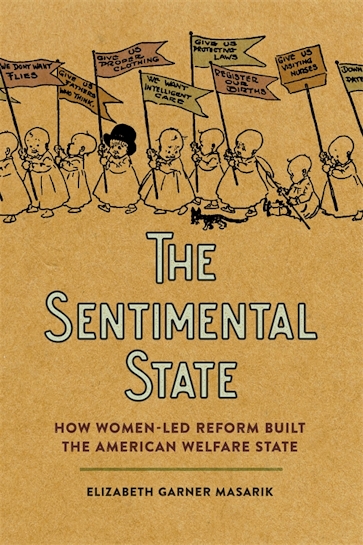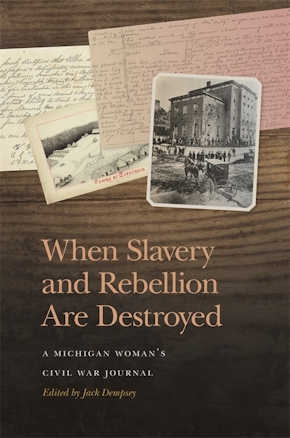The Sentimental State
How Women-Led Reform Built the American Welfare State
Title Details
Pages: 236
Illustrations: 8 b&w scattered
Trim size: 6.000in x 9.000in
Formats
Paperback
Pub Date: 04/01/2024
ISBN: 9-780-8203-6605-0
List Price: $24.95
Hardcover
Pub Date: 04/01/2024
ISBN: 9-780-8203-6606-7
List Price: $114.95
eBook
Pub Date: 04/01/2024
ISBN: 9-780-8203-6607-4
List Price: $24.95
eBook
Pub Date: 04/01/2024
ISBN: 9-780-8203-6608-1
List Price: $24.95
Subsidies and Partnerships
Related Subjects
SOCIAL SCIENCE / Women's Studies
SOCIAL SCIENCE / Gender Studies
HISTORY / United States / 20th Century
HISTORY / United States / 19th Century
POLITICAL SCIENCE / Public Policy / Social Services & Welfare
The Sentimental State
How Women-Led Reform Built the American Welfare State
Explores the link between nineteenth-century sentimental culture and female political action
Skip to
- Description
- Reviews
With The Sentimental State, Elizabeth Garner Masarik shows how middle-class women, both white and Black, harnessed the nineteenth-century “culture of sentiment” to generate political action in the Progressive Era. While eighteenth-century rationalism had relied upon the development of the analytic mind as the basis for acquiring truth, nineteenth-century sentimentalism hinged upon human emotional responses and the public’s capacity to feel sympathy to establish morally based truth and build support for improving the welfare of women and children.
Sentimentalism marched right alongside women’s steps into the public sphere of political action. The concerns over infant mortality and the “fall” of young women intertwined with sentimentalism to elicit public action in the formation of the American welfare state. The work of voluntary and paid female reformers during the late-nineteenth and early-twentieth centuries shaped what would become lasting collaborations between grassroots voluntary organizations and the national government.
Women saw a social need, filled it, and cobbled together a network of voluntary organizations that tapped state funding and support when available. Their work provided safeguards for women and children and created a network of female-oriented programs that both aided and policed women of child-bearing age at the turn of the twentieth century. Through an examination of these reform programs, Masarik demonstrates the strong connection between nineteenth-century sentimental culture and female political action, advocating government support for infant and maternal welfare, in the twentieth century.
—Felicity M. Turner, author of Proving Pregnancy: Gender, Law, and Medical Knowledge in Nineteenth Century America



